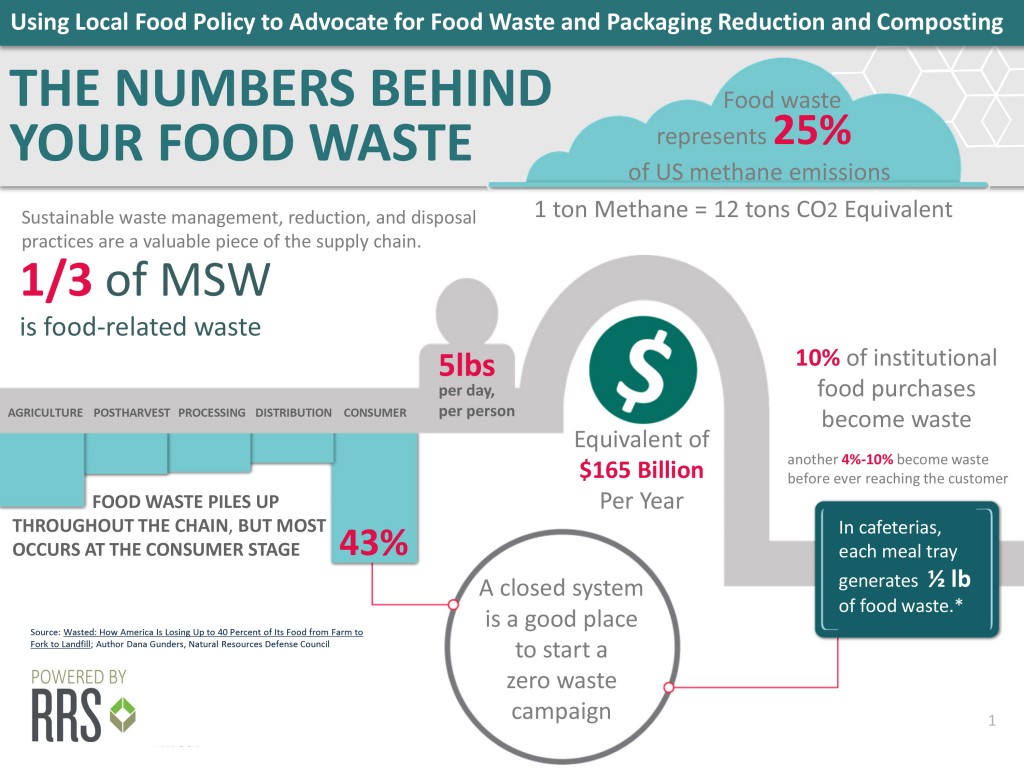Food Waste, Management, and Worms
Last week’s College and University Recycling Coalition (CURC) Workshop at Michigan State University provided great discussion on organics waste diversion. I must say, there was quite the buzz about vermicomposting – using worms to create a nutrient-rich soil amendment and keeping it on campus to minimize costs and environmental impact – seen at MSU’s student organic farm. Hey, worms are sexy!
It is encouraging to see institutions implementing strategies to responsibly handle food waste. 10% of institutional food purchases become waste before it is even served – that’s equivalent to throwing cash in the trash and may be reduced through improved purchasing practices. Look a bit further and each cafeteria meal tray generates between 1/3 and 1/2 lb of food waste. MSU’s dining facilities serve over 30,000 meal each day – that is literally tons of food waste generated each year.
 Managing food waste creates an incentive to educate and encourage other sustainable practices such as recycling, waste reduction and social responsibility. In addition, local food systems, including food waste management, supports food security for our citizens. Food waste can be redistributed to hungry people at food banks, as animal feed at farms, as compost for urban agriculture, and lastly transformed to energy.
Managing food waste creates an incentive to educate and encourage other sustainable practices such as recycling, waste reduction and social responsibility. In addition, local food systems, including food waste management, supports food security for our citizens. Food waste can be redistributed to hungry people at food banks, as animal feed at farms, as compost for urban agriculture, and lastly transformed to energy.
Institutions like universities, hospitals, prisons, and others with large cafeterias are great sources of food waste and therefore make great starting points for waste reduction strategies and diversion. However, for this to truly be a local food system, there has to be participation and collaboration to develop policies that support and sustain the effort to systematically and responsibly handle food waste beyond the institutional walls.
I am part of the Washtenaw County Food Policy Council (WFPC) that is composed of a diverse group of local professionals each contributing their knowledge in different areas, such as urban agriculture, food service, health care, economic development, public health, and waste management with the common goal of developing a healthy community and thriving local food system. The purpose of the council is to make policy recommendations, strengthen local connections, educate the community, and identify and recommend policy action and related programming based on research and analysis of the local food system.
Food waste management is not easy to implement. You must take into account policy and legislation, volumes and sources of food waste, logistics, infrastructure, funding, and outreach. But associations like the WFPC can get the ball rolling, and keep it rolling, by highlighting avenues to collaborate, inform and affect local food systems. It’s like having an advocate for the closed loop food system. A representative for food waste recovery. A worm union! Okay, maybe not, but you have to admit that vermicomposting is pretty cool!

